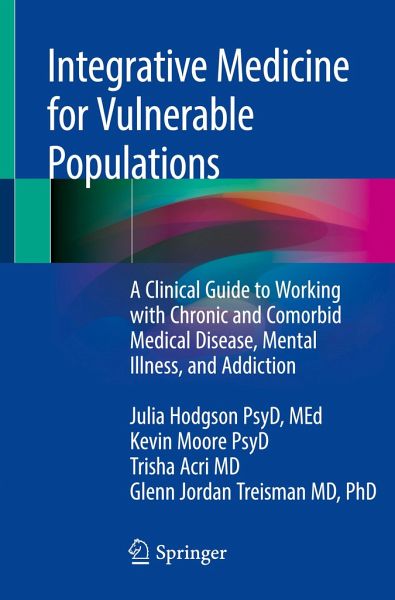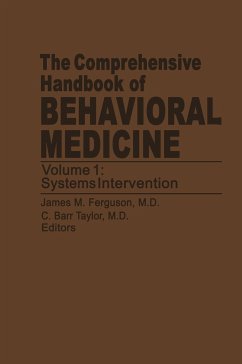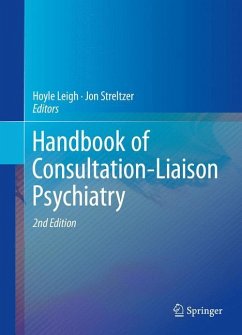
Integrative Medicine for Vulnerable Populations
A Clinical Guide to Working with Chronic and Comorbid Medical Disease, Mental Illness, and Addiction

PAYBACK Punkte
23 °P sammeln!
This first-of-its-kind title addresses the failures of an often fragmented healthcare system in managing vulnerable patients with multiple, chronic, co-morbid conditions -- patients who are frequently unresponsive to the methods and approaches used to treat other patients with conditions that are less complicated. The book emphasizes a holistic evaluation to patient care that looks at the whole patient, providing comprehensive formulations that describe the interacting problems that afflict the patient, including elements that are barriers to effective treatment of active medical problems and ...
This first-of-its-kind title addresses the failures of an often fragmented healthcare system in managing vulnerable patients with multiple, chronic, co-morbid conditions -- patients who are frequently unresponsive to the methods and approaches used to treat other patients with conditions that are less complicated. The book emphasizes a holistic evaluation to patient care that looks at the whole patient, providing comprehensive formulations that describe the interacting problems that afflict the patient, including elements that are barriers to effective treatment of active medical problems and barriers to recovery. The book begins by defining integrated care, discussing the types of patients who benefit from this approach and some of the models of care, including financing, barriers to acceptance, and advocacy for patients. The second section discusses the structural elements of integrated care, including the building of a team approach, issues of leadership, and role definition, as well as the authors' experiences in overcoming some of the problems. In the remaining sections, the book discusses major complicating features of the patients seen in integrative care settings, including a description of the kinds of problems, a model for formulation of patient cases, and successful approaches to treatment of these problems. Finally, some of the real-world applications where integrative care provides better outcomes is covered, including in terms of addictions, medically complex patients, and chronic pain patients. Integrative Medicine for Vulnerable Populations - A Clinical Guide to Working with Chronic and Comorbid Medical Disease, Mental Illness, and Addiction is a major contribution to the clinical literature and will be of great interest to health care professionals, administrators, policy stakeholders, and even interested patients and patient advocates.












